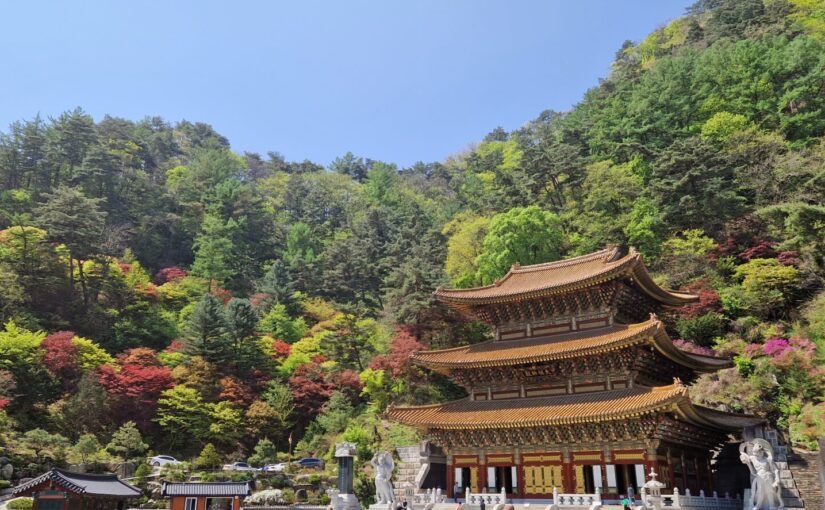Field of study in Wageningen: Bsc Animal Sciences
Study period exchange: 28/02/2023 – 16/06/2023
Country (exchange): South Korea
City (exchange): Seoul
University (exchange): Seoul National University
2. Motivation for exchange
Why did you choose to go on study exchange?
I’ve always wanted to challenge myself to live in another country. I also wanted to experience a different culture and this is most convenient when you’re a student. So I took my chances.
What is the reason you chose for this country/university?
For a long time I was really interested in the culture of South Korea.

3. Accessibility to reach destination
Do you have any tips to reach your exchange destination?
You can definitely take public transport from the airport to your accommodation, that’s what I did. Just keep in mind that it can take longer than if you go by taxi and might a bit inconvenient if you have a lot of luggage. Therefore you can also take a taxi, which are quite cheap here compared to the Netherlands. There’s also a airport shuttle bus but I’ve never taken that one so don’t know how that one works in particular. Public transport cards can be bought in the convenience stores like CU, 7eleven and GS25. But I’ve heard from people they can also be bought in vending machines on the airport. You have to charge these cards with cash which can be done at most convenience stores or designated machines. Be aware that if you take the subway they stop at around 01.00.
4. University and studying
Could you provide some general information about the followed courses?

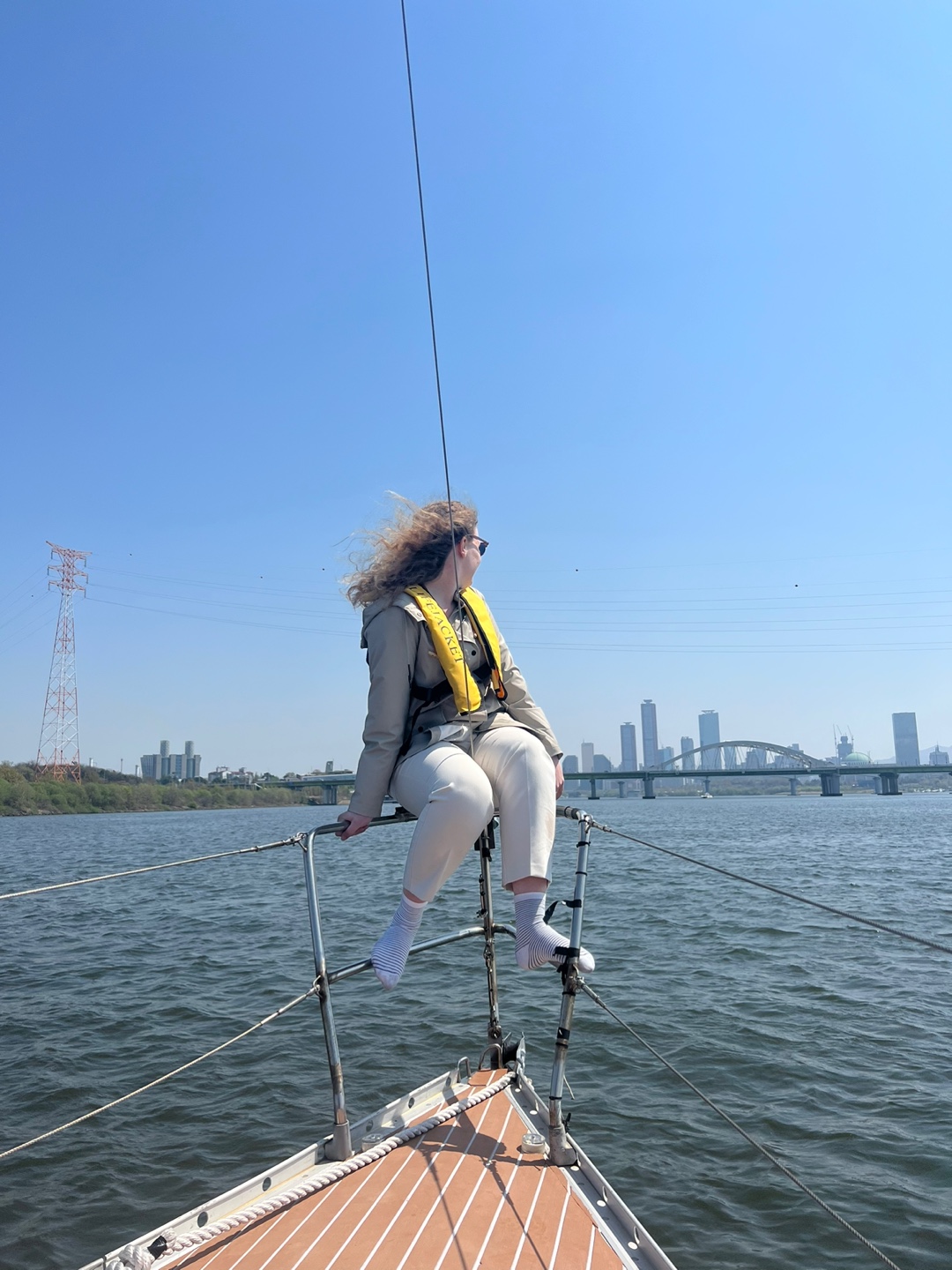 How is the study formalized?
How is the study formalized?
Most English given classes have absolute grading which is different from the grading on a curve most Korean classes have. All classes also grade your make for 10% attendance and therefore there will take attendance in each class. If you miss out it’s not that big of a thing and some classes do let you make it up in another way. Then you also have a midterm and final exam. For me the workload was very doable however this really depends on how much classes you take on and the courses itself. As there can be a lot of variation between professors and the amount of work they give you. Furthermore most courses give classes of 3 hours long, once a week so it can be a bit hard to pay attention the whole time. Although some professor do stop earlier while others fill up the whole 3 hours. Also be aware that for course sign up, it opens up at the same time for all students and it’s hard to get into courses that are highly wanted. There are practice rounds and I would highly recommend doing these if you want to get used to the system.

What is the culture of the university?
I found the professors really kind and approachable. Also because the classes tend to be smaller and they take attendance. They start to know you more and most are open to questions and discussions. All the professors I’ve had were lovely, but again this really depends on the course you have.
What does the university offer the student additionally?
There are a lot of facilities on campus. Think of convenience stores, cafés, restaurants, library, study areas, etc. One thing you’ll use the most is probably the student cafeteria where if you shows that you’re a student through the student card one of the meals becomes only 1000 won (~0.70,-). Which is very convenient. There are multiple libraries but the biggest one has individual study areas on the 7th and 8th floor which you can reserve through your student card at that location. Just remember that after finishing studying you have to give back your seat at the machines where you reserved your seat.
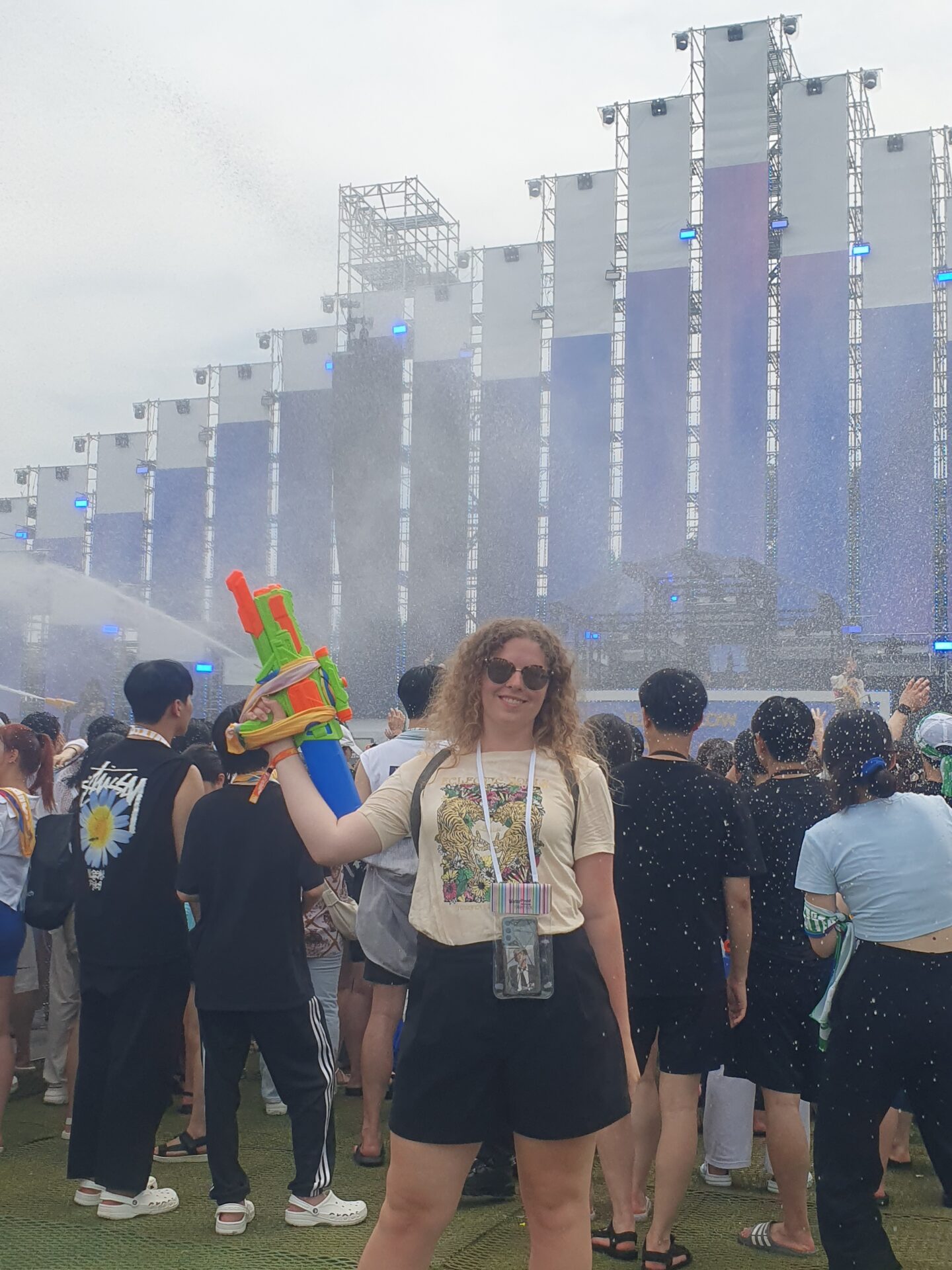
5. Housing-travelling-living
What are the possibilities for housing?
You’re able to live in dorms, a goshiwon (tiny, single housing), a studio or shared housing. Although on campus has limited availability.
What is the culture of the country like?
Some typical differences is wearing house slippers inside. Also the bowing and being respectful to the people around you but especially elders. When giving something or receiving something make sure to do that with two hands or one hand crossed over your stomach. There is many different types of cuisine here so definitely something that would fit everyone. But everything I’ve tried is really good so don’t be scared to try something new. Additionally a lot of food is shared here so it’s best to go out with some other people to try some more dishes as well.
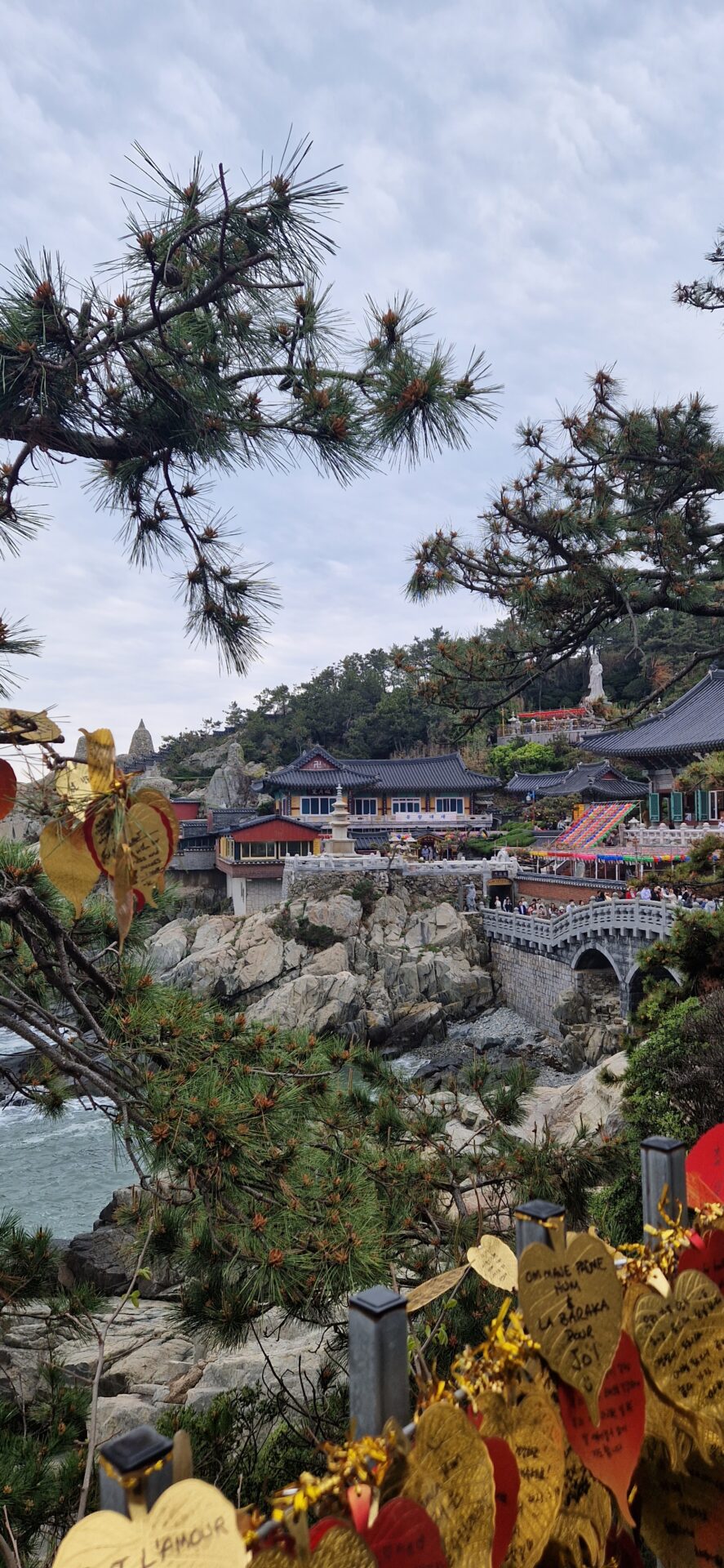
Could you give a general price indication of the place of residence compared to living in Wageningen?
It depends on what type of accommodation you have and in which location. But the dorms are the cheapest but hard to get into and you will have a roommate. You can also live in a tiny single room which are mostly not that expensive. Sharerooms are also possible and others have found housing through Airbnb where prices really depend on the room itself and location. I would say the cheapest is around €150-200 while most expensive is like €550 – 600.
Could you give some information about public transport infrastructure?
Public transport is really convenient here. Everything is easily reachable by the subway or the bus and quite cheap from €0.80 to €2.00 depending on how far you’re going. Keep in mind that most forms of transport stop between 23.30 and 00.00. From that time till 5.30 there are some night busses but not from and to everywhere and not as regular. During that time you can take a taxi as they’re not that expensive although it’s better to share with people to divide the costs. To get to the University you can take busses. If you live on campus you can also walk to the school buildings. If you live off campus you can take the free shuttle bus depending on where you live or a normal bus.
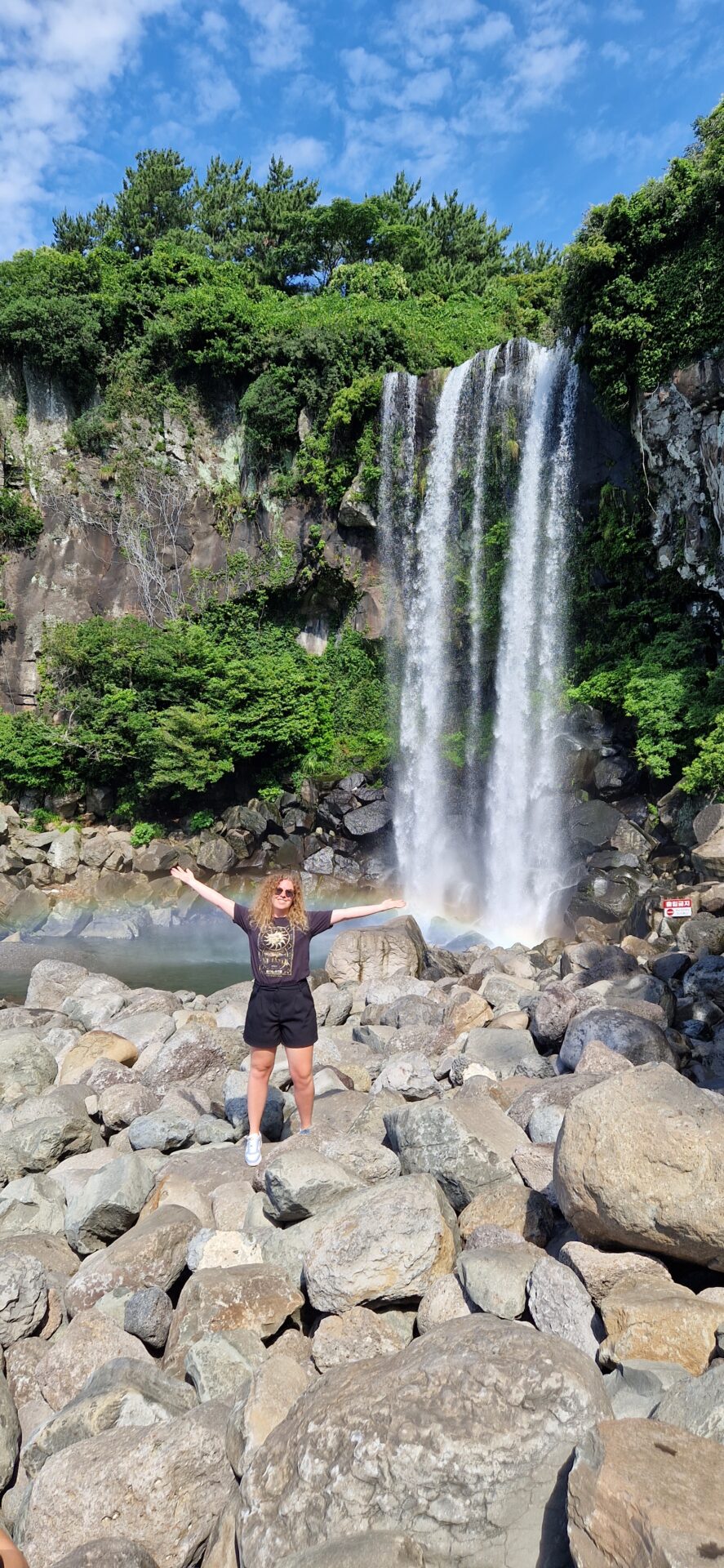
6. Free time
What are must-sees in the area?
Google maps doesn’t work here but use Naver map or Kakao map instead. Although I personally prefer Naver map. Must sees are definitely Gyeongbokgung palace, bukchon hanok village, namsan tower, seoul forest, Yeouido park, etc. There are definitely more places you can visit but there are the basics. Areas you should also definitely explore are Hongdae (shopping and for going out, lots of cafes as well), myeongdong (tourist area but lots of shopping as well, night food market), seongsu and insadong (more traditional shopping items).
What does not appear in the travel guide, but is worth a visit?
I think everything appears in the travel guide but I also really enjoyed the war museum and yeonnam area.

Do you have general tips and tricks about leisure time?
It’s really typical to either go to cafes, karaoke, restaurants, take photos together in photoboxes. Also fun to go to a pub to enjoy some good food with drinks. Also a picnic at the han river is definitely recommended.
7. Challenges & best moment abroad
What was a challenge you have experienced?
I think one of the biggest challenges at first was getting accustomed to the living conditions and to the different kind of food that was available. Although when you get used to it, it doesn’t really bother you that much.
What was your best memory abroad?
It’s hard to chose one as I’ve enjoyed everything that I’ve done. But in general I really enjoyed meeting people from different countries and learning about their points of view.

8. Contact Details
Would you like to ask Esmee more questions about her exchange?
Send her a mail: esmee.vanburgsteden@wur.nl

